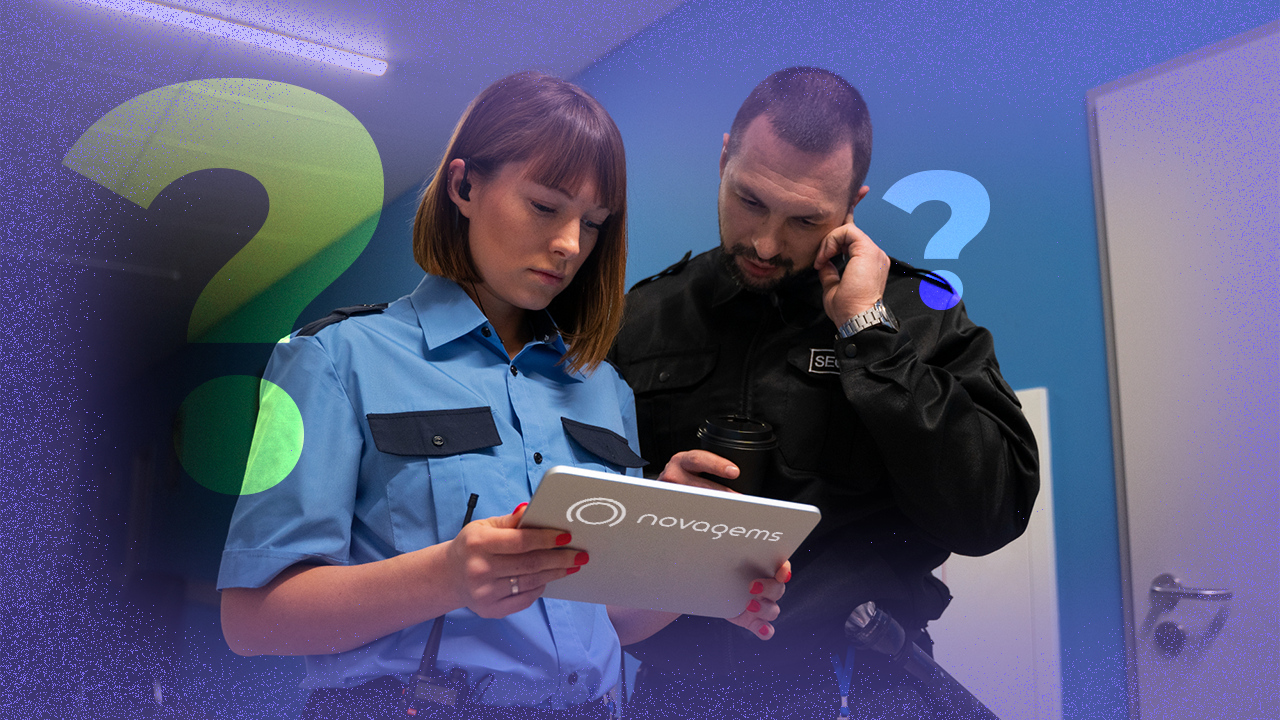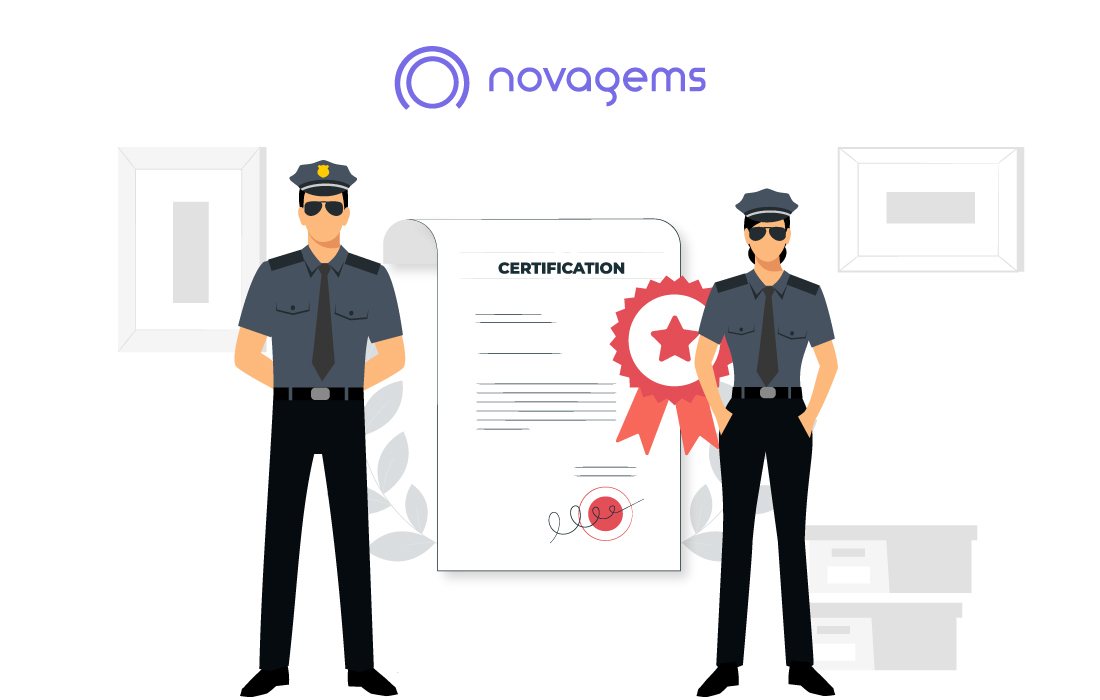How Far Back Does a Company Do a Security Guard Background Check?
Tue, Dec 3, 2024
Read in 7 minutes

When hiring a security guard, companies need to make sure that the person they bring on board is trustworthy, reliable, and capable of doing the job. One way to ensure this is by conducting background checks. These checks help employers understand a candidate’s history. Which is essential for maintaining safety and security in sensitive environments. But one question often comes up: How far back does a company go when conducting a security guard background check?
The answer depends on various factors, such as the type of check, state laws, and the company’s own policies. In this blog, we’ll break down the types of background checks commonly done for security guards and state regulations that affect how far back does a company do a background check. And the factors that influence the depth of these checks. We’ll also cover some best practices for companies to follow when performing background checks on security personnel.
Types of Background Checks for Security Guards
Background checks for security guards can be more detailed than for other types of jobs because these individuals often work in environments where safety and confidentiality are critical. Here are the most common types of background checks used by companies hiring security personnel:
Criminal History Check
One of the most important parts of a security guard background check is the criminal history check. This check is done to make sure the person has not been involved in any serious crimes, especially violent ones or felonies. Companies generally look back at least 7 years into a candidate’s criminal record. However, in some states or under certain conditions, they may go back even further.
For example, if a security guard is working in a highly sensitive location, like a bank or government building, the employer may look through the individual’s entire criminal history. This could mean going back 10 or even 20 years, or sometimes their entire adult life.
Employment Verification
Security guard companies also want to ensure that the candidate has the right experience for the job. Employment verification involves confirming past jobs and responsibilities, usually over the past 10 years. Employers reach out to previous employers to verify job titles, and dates of employment and sometimes ask about the candidate’s performance. This ensures that the person has the skills and experience needed for the job.
Education Verification
While not always necessary, some employers may want to confirm that a candidate has received the required training or certifications to work as a security guard. Education verification ensures that the applicant has completed any necessary courses or degrees. This check usually only goes back to the point when the candidate completed their education, so it may not have a specific time limit.

Credit History Check
In some cases, especially when a security guard will be responsible for handling large sums of money or protecting valuable items. Companies might conduct a credit history check. This type of background check can provide insight into a person’s financial responsibility. While it doesn’t always play a role in the hiring process, a poor credit history could be a red flag, especially in positions that require handling finances. A credit history check can go back as far as 7 to 10 years, depending on the company’s policy.
Drug Screening
Drug screening is a common requirement for security guards. While this doesn’t have a specific time frame, it is used to ensure that the candidate is not currently using illegal substances. Companies often require a drug test before making a job offer and may also conduct random drug tests throughout employment. This is one security guard background check that cannot be avoided. And as a security guard, you must pass this check if you want to stay employed.
Understanding State Variations in Background Check Requirements
The regulations for conducting background checks differ from state to state. And it’s important for employers to be familiar with the specific laws in their location. These laws determine how far back a company can review a candidate’s criminal history and other personal information.
Here are some key points to consider:
Limited Lookback Periods:
States like California restrict employers to reviewing only the last 7 years of a candidate’s criminal record. Additionally, sealed or expunged records cannot be considered in the hiring process.
No Limitations in Some States:
States such as Texas and Florida allow employers to go as far back as necessary when conducting background checks. There are no legal restrictions on how many years of history an employer can review.
Balancing Privacy and Security:
These variations are designed to strike a balance between protecting individual privacy and allowing employers to make well-informed hiring decisions. Especially for roles with higher security demands.
Factors Influencing the Depth of Background Checks
Several factors influence how far back a company will go when conducting a background check for a security guard position. Some of these factors include the nature of the job, company policies, and the presence of any red flags in the candidate’s history.
Job Responsibilities
The responsibilities of the security guard play a significant role in determining how deep a background check should go. For example, a security guard who is protecting a high-profile client or working in a government facility may undergo a much more thorough background check than one working at a shopping mall. The higher the responsibility, the more in-depth the check will be, sometimes covering the candidate’s entire adult life.

Company Policy
Each company has its own policies when it comes to background checks. Some companies may choose to only look back 7 years, while others might review an applicant’s history over a longer period. For security guard positions, most companies opt for more thorough checks to ensure that they are hiring reliable individuals.
Red Flags in Application
If an applicant’s resume or application raises any concerns, such as unexplained gaps in employment or inconsistencies in their work history, the employer may choose to dig deeper into the candidate’s background. This could mean extending the timeframe of the check to ensure there is nothing concerning in the applicant’s past.
Security Level
The level of security involved in the job can also affect the depth of the background check. Security guards working in highly sensitive environments, like government buildings, airports, or hospitals, may undergo more detailed checks, often including a review of their entire adult criminal and employment history.
Best Practices for Security Guard Background Checks
Conducting thorough background checks for security guards is essential, but it’s equally important to ensure the process is legal and fair. Security companies need to be very careful if they want to get more contracts. Here are some best practices that companies should follow:
- Stay Compliant with Laws
Employers must stay up to date with state and federal laws that govern background checks. Different states have different rules about how far back employers can go, so it’s important to understand and follow those guidelines to avoid legal issues.
- Customize Background Checks Based on Job Needs
Not every security guard position requires the same level of scrutiny. Companies should tailor their background check process based on the specific needs of the job. For example, a guard working at a retail store may not need as thorough a check as one working in a high-security facility.
- Use a Reputable Background Check Service
Using a professional background check service can help ensure the accuracy and completeness of the check. These services have access to national and state databases and can provide more reliable results than doing a background check in-house.
- Provide Applicants a Chance to Explain
If something concerning comes up during a background check, companies should allow the candidate to explain the issue. Sometimes, past mistakes have been corrected, or there may be a reasonable explanation for a gap in employment or a minor infraction.
Conclusion
In summary, when conducting a background check for a security guard, companies generally go back 7 to 10 years. Though the exact time frame can vary depending on the type of check, state laws, and company policies. It’s essential to follow state regulations and tailor the depth of the check to the specific job. By following best practices, companies can hire security guards who are trustworthy and capable, while staying compliant with legal requirements. And trustworthy security guards will help you increase the sales of your security company.
Get a Free Trial
Sign up For Newsletter
Latest Blog Posts
Get Started
Start being productive & grow your business
with Novagems



